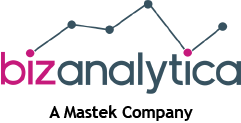
Combating the common roadblocks to data modernization
Modernizing your data strategy can vastly improve business efficiency and accuracy, but going through the process of updating legacy data systems and technologies can be a daunting task. While we know data modernization is the way of the future, there are also several challenges that organizations may face during the modernization process. Let’s take a look at some of these common roadblocks together:
1.) Legacy System Integration
One of the biggest challenges of data modernization is integrating legacy systems with modern technologies. Many organizations have data stored in outdated systems that are difficult to migrate into new platforms. This can result in data silos that prevent organizations from accessing and utilizing data effectively. Having a partner who can help you identify and address integrating data silos, disparate data formats or incompatible APIs can start you off on the right foot and speed up migration time.
2.) Data Quality
This is a very common struggle when modernizing your data strategy, but one that needs to be handled carefully to mitigate risk of data loss or corruption. This can be especially challenging when dealing with large volumes of data or data that is highly complex. To ensure data quality isn’t affected, make sure to establish clear data governance policies and procedures, including data profiling, cleansing, and standardization before starting your migration process.
3.) Cost and Resource Constraints
Data modernization can be a resource-intensive process that requires significant investments in both time and money, particularly if you don’t have the right support in place. By balancing the costs and benefits of your new data modernization strategy up front, you can prioritize projects and set clear objectives for the road ahead. To minimize costs, it’s a great idea to consider partnering with a technology provider or experienced consultant to reduce the burden on internal resources.
4.) Organizational Resistance to Change
Data modernization can be a disruptive process as it greatly affects established workflows and processes. Although the end result is a more efficient data strategy, changing up legacy systems can rub people the wrong way. In order to get out in front of some of this resistance, make sure to highlight the benefits of data modernization up front and make sure to engage stakeholders throughout the process.
5.) Security and Compliance
When going through the process of data modernization, it’s not uncommon to open up your organization to security and compliance risks. Navigating around privacy concerns, data handling and cybersecurity risks is a tricky but important process as you start to develop your modernization strategy. Make sure that you’re pre-emptively addressing any security risks and always choose a service provider that will keep your data safe.
Although developing a new data modernization strategy takes careful planning and hard work, the results will reduce operational risk and empower decision-making for the future. By being aware of the common roadblocks and pitfalls you may encounter, you’ll be well-equipped to unlock the full potential of your enterprise data.
Ready to discuss how to simplify your journey to becoming a data driven business?



